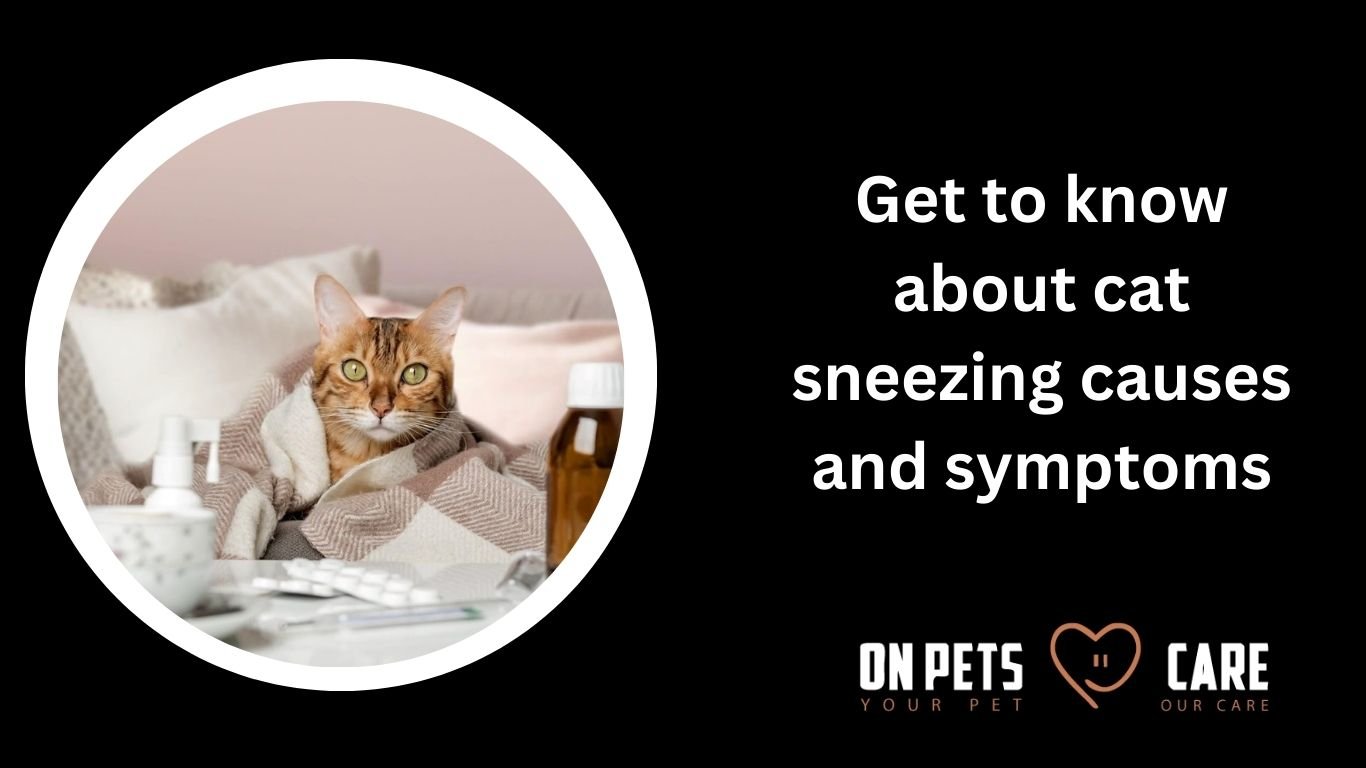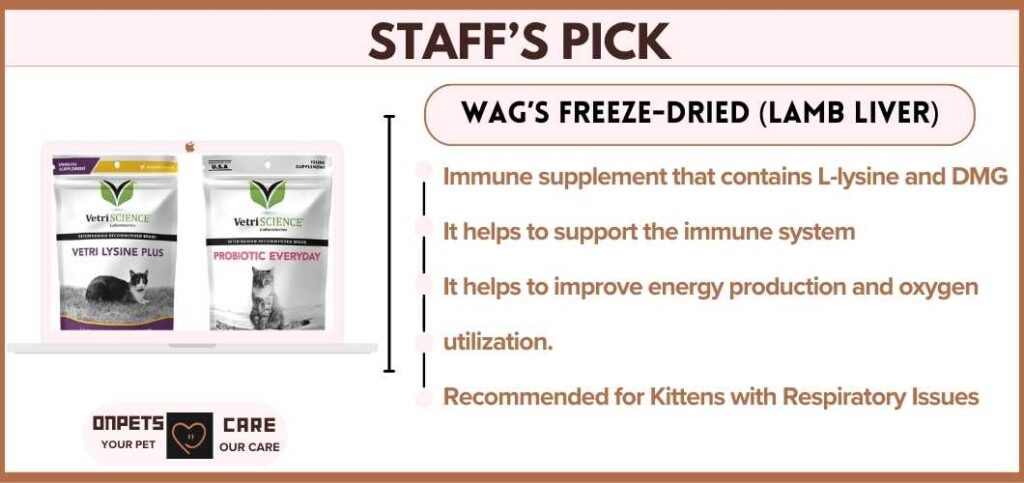Get to know about cat sneezing causes and symptoms

Hey there, fellow cat lovers! If you’ve ever been greeted by the adorable sight of your furry friend sneezing, you’re not alone. Cats, like humans, can catch a case of the sneezes from time to time. But, wait is cat sneezing something to brush off as a mere inconvenience, or could it be a sign of something more serious? Join us to learn about the causes of your feline sneezes, exploring the causes, symptoms, and when you might need to be worried if your cat sneezes a lot.
Table of Contents
Cat sneezing is bad

Cat sneezing is bad news, and here’s why. Unlike us humans, cats don’t usually sneeze just for the fun of it. Sneezing fits that are protracted or frequent may be a sign of an underlying problem that requires medical treatment. Thus, it’s time to put on your detective cap and investigate if Mittens has been acting like a little sneeze machine lately.
Here are some signs to watch out for:
- Sneezing frequently (multiple times a day)
- Sneezing that lasts for days or weeks
- Sneezing is accompanied by other symptoms like watery eyes, runny nose, lethargy, fever, facial swelling, or difficulty breathing
- Blood in the mucus
Why Do Sometimes Cats Sneeze a Lot?
Now, you might be wondering, “What’s up with my cat and all these sneezes?” Well, there are various reasons why your feline friend might be caught in a sneezing spree. It could be as simple as dust or pollen irritating their sensitive noses, or they may have inhaled something they shouldn’t have – like a stray piece of string from their favorite toy. Just like us, cats can also catch colds, and a viral infection might be behind the sneeze fest.
There are several reasons why cats might sneeze a lot, ranging from harmless irritants to more serious underlying issues. Here’s a breakdown of the most common causes:
Mild Causes:
- Irritants: Just like humans, cats can sneeze due to irritants like dust, pollen, strong odors, or even their fur tickling their nose.
- Foreign object: Sometimes, a curious cat might inhale something like a small piece of toy or plant material, triggering sneezing to expel it.
- Excitement: Some cats sneeze when they’re excited or playful, similar to how some humans giggle.
More concerning causes:
- Upper respiratory infections (URIs): These are the most common cause of frequent sneezing in cats. Viruses like feline herpesvirus and calicivirus can cause URIs, often accompanied by watery eyes, congestion, fever, and lethargy.
- Allergies: While less common than in dogs, cats can develop allergies to dust mites, pollen, or other environmental factors, leading to sneezing as a symptom. Some cat foods can also be the reason behind the cat sneezing so, one should give their Cat foods from reputable brands like Onpetscare.
- Dental disease: Inflammation or infection in the mouth or sinuses can irritate the nasal passages and cause sneezing.
- Nasal tumors: In rare cases, chronic sneezing can be a sign of a nasal tumor.

Determining the Cause:
If your cat is sneezing a lot, it’s important to consider the frequency, severity, and any accompanying symptoms:
- Frequency: Occasional sneezing is usually nothing to worry about, but frequent sneezing (multiple times a day) warrants attention.
- Severity: Is the sneeze forceful or just a light sniffle? Are there any changes in the sound or character of the sneeze?
- Symptoms: Look for watery eyes, runny nose, lethargy, fever, facial swelling, or difficulty breathing, as these can indicate a more serious issue.
How to Know When to Take Your Sneezing Cat to the Vet

You’re not expected to be a vet at home. If your cat sneezing a lot and persists, it’s time to consult the professionals. If you observe any concomitant signs like coughing, lethargy, or nasal discharge, a veterinarian visit is necessary. These can indicate a more serious problem that needs to be attended to by professionals. Remember, a veterinarian’s expertise is important for your furry sidekick.
It’s understandable to worry about your cat’s frequent sneezing. While occasional sneezes are normal, some signs indicate it’s time to visit the vet for proper diagnosis and treatment. Here’s how to make the decision:
When NOT to worry:
- Occasional, light sneezes: If your cat sneezes infrequently (less than 5 times a day) and the sneezes are light and dry, it’s likely not a cause for immediate concern. Monitor their behavior for other symptoms.
- Brief sneezing after exposure: Did your cat sneeze a few times after sniffing a flower or encountering dust? This is likely a normal reaction to an irritant and should subside shortly.
When to schedule a vet visit:
- Frequent sneezing (multiple times a day for several days): This could indicate an underlying issue like an infection or allergy.
- Sneezing accompanied by other symptoms: Watch for watery or colored discharge from the nose or eyes, congestion, coughing, wheezing, difficulty breathing, lethargy, fever, loss of appetite, or facial swelling. These symptoms point toward a potential problem requiring veterinary attention.
- Change in the sneeze: If the sneeze sounds different than usual (more forceful, wet, congested), it could indicate deeper irritation or obstruction.
- Kitten or senior cat: Kittens and older cats have weaker immune systems and are more susceptible to complications from upper respiratory infections. If the cat sneezes a lot then frequently, even without other symptoms, consulting a vet is advisable.
Additional tips:
- Monitor your cat’s behavior: Are they playful and energetic, or lethargic and withdrawn? Changes in behavior can provide clues about their overall health.
- Take note of the environment: Has anything changed in their surroundings that might be irritating (new plants, strong cleaning products)?
- Document the sneezing: Try to record the frequency, sound, and any accompanying symptoms to share with your vet.
Cat Sneezing a Lot | Causes and When It’s a Concern

Alright, let’s get down to the nitty-gritty. Cats sneezing a lot might be due to a variety of factors. It could be a case of feline herpesvirus, which sounds scary but is more common than you might think. Allergies are also on the suspect list, and yes, cats can be allergic to things just like us. And don’t rule out the possibility of a foreign object lodged in their nasal passages – curiosity can sometimes lead to unexpected consequences!
When should you be concerned? If Mittens is sneezing blood, has difficulty breathing, or if the sneezing persists for more than a week, it’s time to ring up the vet’s office. These could be signs of a more serious issue that needs prompt attention.
5 best home remedies for cat sneezing:
There are some things you can do to improve your cat’s comfort and potentially help address mild irritants, it’s crucial to remember that I cannot diagnose your cat’s condition or recommend specific treatments. If your cat’s sneezing is frequent, severe, or accompanied by other symptoms, consulting a veterinarian is always the best course of action.
Here are some general considerations to keep in mind:
- Why Veterinary care should never be replaced with over-the-counter medications. A veterinarian can identify the underlying reason and suggest the best course of action if your cat’s sneezing is bothersome or persistent.
- Some remedies may be harmful or inappropriate for your cat. Always err on the side of caution and consult your vet before trying anything new.
With that said, here are some potentially helpful measures you can take at home, but only after discussing them with your vet:
- Reduce irritants: Identify and eliminate potential irritants in your cat’s environment, such as dust, air fresheners, or strong scents.
- Warm compress: Soak a clean washcloth in warm water and gently apply it to your cat’s nose and face for a few minutes, being careful not to get water in their eyes.
- Elevation: Prop up your cat’s head with a pillow or towel while they rest to help with drainage.
- Boost humidity: To relieve congestion and calm irritated nasal passages, use a cool-mist humidifier.
- Promote hydration by making sure your cat has access to an ample supply of clean water. To get them to drink more, you can also offer them some warmed broth or tuna juice.
Remember:
- These are just general suggestions, not guaranteed solutions.
- Never administer any medications or supplements to your cat without consulting your vet.
- Monitor your cat closely and stop any remedy if they seem uncomfortable or it worsens their condition.
Conclusion
There you have it, cat enthusiasts! Cat sneezing might seem like a trivial matter, but it can be a clue to your furball’s overall health. Remember, it’s okay to be concerned about your cat’s well-being. If in doubt, consult with your vet. So, the next time Mittens unleashes a sneezing symphony, give them some extra love and attention and keep a watchful eye, just in case. After all, a happy, Healthy cat is a sneeze-free cat!
In the grand scheme of things, cat sneezing might just be a hiccup in your feline friend’s journey, but paying attention to these signals ensures that you’re always one step ahead in being the best cat parent you can be. Stay curious, stay vigilant, and most importantly, stay snuggled up with your purring pal!
FAQs:
1. Why Is My Cat sneezing a lot?
If your cat sneezing a lot, it’s essential to consider various factors. Common causes include allergies, respiratory infections, or even the presence of foreign objects in their environment.
2. Can Allergies Cause Cat Sneezing?
Absolutely! Cats can be allergic to a variety of things, from pollen and dust to certain Foods. Allergies may be the cause if your cat also has wet eyes or itching when they sneeze.
3. When Should My Sneezing Cat Get Veterinary Care?
Sneezing once in a while might not be a big deal, but frequent or severe sneezing calls for a veterinarian visit. If you notice nasal discharge, coughing, lethargy, or any unusual behavior, it’s time to consult with a professional.
4. Is Cat Sneezing Contagious to Humans?
The good news is that most causes of cat sneezing, such as feline herpes virus or respiratory infections, are not transferable to humans. However, it’s crucial to practice good hygiene, especially if your cat is unwell. Wash your hands thoroughly after handling your sneezing cat to prevent the potential spread of any germs.
5. What Home Remedies Can Help Alleviate Cat Sneezing?
While it’s essential to consult with your vet for a proper diagnosis and treatment plan, you can try some home remedies to provide comfort to your sneezing cat. Ensure a clean and dust-free environment, use a humidifier to ease nasal congestion, and offer plenty of fresh water.





Leave a Reply